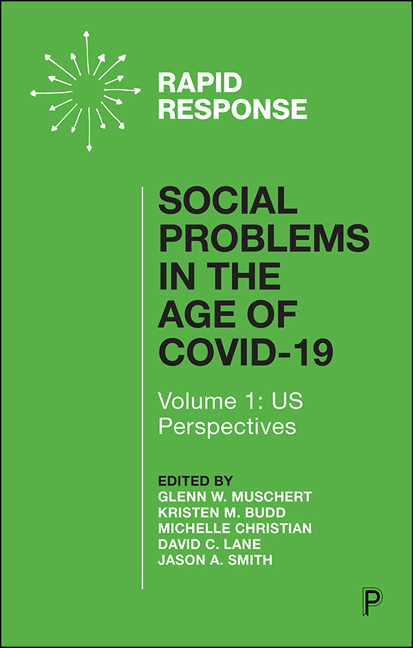Presidential Welcome
Published online by Cambridge University Press: 23 March 2021
Summary
When our political activism isn't rooted in a theory about transforming the world, it becomes narrow; when it is focused only on individual actors instead of larger systemic problems, it becomes short-sighted. We do have to deal with the current crisis in the short term. That's important. We have to have solutions for people's real-life problems, and we have to allow people to decide what those solutions are. We also have to create a vision that's much bigger than the one we have right now.
Patrisse Khan-Cullors, Co-Founder of #BlackLivesMatter, as quoted in Barbara Ransby, Making All Black Lives Matter: Reimagining Freedom in the 21st Century (University of California Press, 2018)
In a wonderful 2013 anthology, Handbook of Sociology and Human Rights by Brunsma, Iyall and Gran (Routledge, 2012), I noted that sociology began as an impassioned effort to apply scientific inquiry to studying and solving social problems, but somewhere along the line it became a rather dour academic discipline, well equipped to show students what is wrong with the world but stodgy at best in teaching them how to change it. The bulwark of the discipline, the social problems course, had evolved into a 14-chapter litany of misery, whose stubborn yet enlightening data could effectively dismantle cherished ideologies and oppressive mythologies, but too often failed in guiding young people to make a better world.
Still, as Joe Feagin, Hernan Vera, and Kimberley Ducey argue in their 2014 volume Liberation Sociology (Routledge), the discipline “ignites the imagination of countless students” because it promises to heighten their understanding of the world and help them build a better society. The authors conclude: “For generations now, not just college students but all who learn to read the world through sociological ideas have shared in the excitement and insight of being empowered by their newly acquired mindfulness” (p. vii). Sociology can meet the challenge issued by one of its founders, Karl Marx, to not only interpret the world, but change it.
Such has been the dilemma for us as sociologists and for our organization, the Society for the Study of Social Problems (SSSP). We were founded by people who believed that professional, “fat cat” sociology was “enmeshed deeply in the bureaucratic, technocratic, plutocratic and imperialistic structure of our society.
- Type
- Chapter
- Information
- Social Problems in the Age of COVID-19 Vol 1Volume 1: US Perspectives, pp. vii - xPublisher: Bristol University PressPrint publication year: 2020



